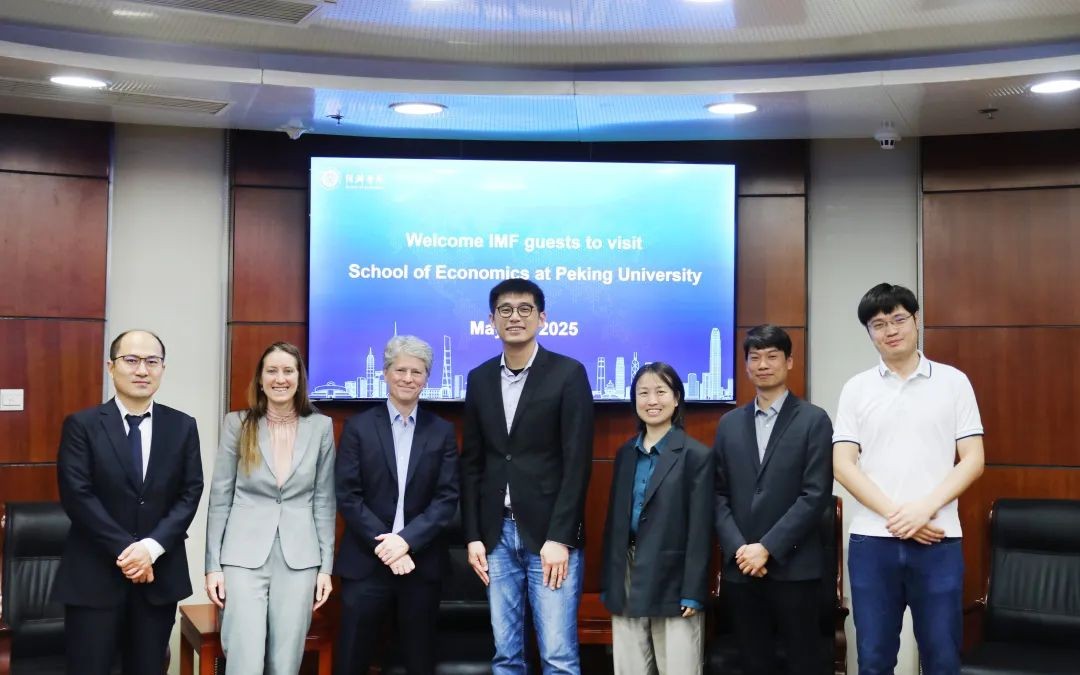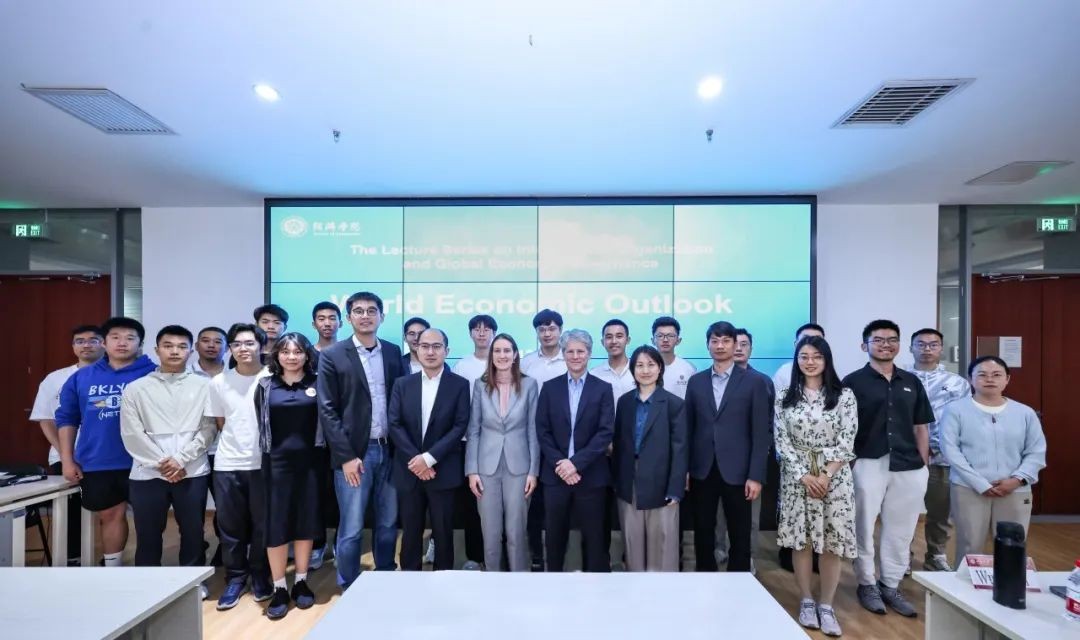 >Home>
SEPKU News
>Home>
SEPKU News
On May 12, 2025, the 15th session of the Lecture Series on International Organizations and Global Economic Governance was held at the School of Economics, Peking University. The event featured Marshall Mills, Chief Representative of the International Monetary Fund (IMF) in China, and Andresa Helena Lagerborg, an IMF economist, who shared insights from the IMF’s latest World Economic Outlook Report . The session was moderated by Prof. Wu Zenan, Assistant to Dean of the School of Economics, with commentary provided by Associate Prof. Wang Yaojing and Assistant Prof. Mo Jiawei.
Before the lecture, faculty representatives held a roundtable discussion with the IMF delegation. Prof. Wu welcomed the guests, noting the longstanding partnership between the School and the IMF, and expressed hope for deepened cooperation in academic research, curriculum development, and student engagement. Mills, making his first official visit to the School as Chief Representative, expressed appreciation for the opportunity and looked forward to further collaboration.

In his keynote presentation themed “ Global Prospects and Policies”, Marshall Mills discussed the IMF’s forecast that global GDP growth will slow from 3.3% in 2024 to 2.8% in 2025, with a modest recovery to 3.0% projected for 2026. Mills highlighted key headwinds including prolonged post-pandemic effects, rising policy uncertainty, and structural shifts in global trade patterns. He emphasized the importance of international policy coordination to mitigate trade frictions, maintain monetary stability, and implement structural reforms to unlock new growth drivers.
In his commentary, Prof. Mo Jiawei highlighted a key challenge: uncertainty. He pointed to shifting trade policies and geopolitical tensions as major factors holding back global consumer confidence. Professor Mo also emphasized that future research should delve into the wider, systemic effects of supply chain disruptions and how economic shocks impact different groups in varied ways.
Andresa Helena Lagerborg presented the second chapter of the report, “ The Rise of the Silver Economy: Global Implications of Population Aging”. She examined the economic impact of aging populations worldwide and highlighted the role of healthy aging in sustaining labor force participation and productivity. Using overlapping generations (OLG) modeling, her research projected that rapid aging, especially in countries like China, will exert downward pressure on long-term growth. She emphasized the importance of education, health investment, and AI adaptation in mitigating these effects.
Associate Prof. Wang Yaojing, in her response, discussed China’s demographic trends and regional disparities in aging. She noted the resulting fiscal pressures and the need for adaptive policy responses, including innovation in eldercare services, retirement systems, and insurance products. Wang also pointed to emerging opportunities in age-friendly industries and technology-enabled elderly care.
The event concluded with an interactive Q&A, where students and faculty engaged with the IMF experts on topics ranging from monetary policy to demographic shifts.

Group Photo